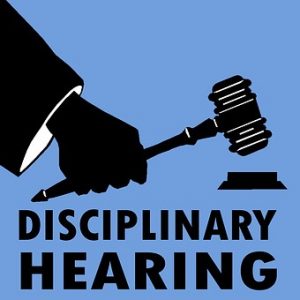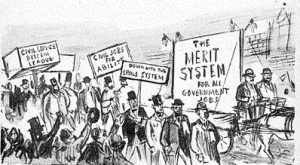In an important decision interpreting New Jersey employment law, the Supreme Court ruled in the case of Melnyk versus the Delsea Regional High School District that analyzing whether a position is eligible for tenure protection depends on the statutory requirements, not  on how the employer chooses to label it.
on how the employer chooses to label it.
Paula Melnyk was a long-time, tenured, full-time, certified, special education and English teacher during the day for the Board of Education of the Delsea Regional High School District, since 1991. From 2002 through 2015, except for a break in the 2009-2010 school year, she also taught at in the Board’s BookBinders Program. This was an evening program for students who had been removed from the traditional daytime classroom for behavioral issues, or who otherwise could not participate in the regular school program. State law required the Board of Education to provide this service, whether through its own staff and facilities, or by agreement through another district. The Board chose to provide the services itself.
The Board characterized Melnyk’s work in this program as “extra-curricular,” and therefore not eligible for tenure. Had it been a position eligible for tenure, Melnyk would have earned it, since even with the break in 2009-2010, she had more than the three years and a day then required to earn tenure (that time frame was increased in 2012 by the TEACHNJ Act, but it was not applicable when Melnyk would have earned tenure).
 employees the ability to appeal most employer imposed discipline to the New Jersey Civil Service Commission.
employees the ability to appeal most employer imposed discipline to the New Jersey Civil Service Commission. New Jersey Lawyers Blog
New Jersey Lawyers Blog


 employment who meet the Civil Service definition are eligible to receive a veterans and disabled veterans preference, which increases their ranks on eligible lists. The courts have
employment who meet the Civil Service definition are eligible to receive a veterans and disabled veterans preference, which increases their ranks on eligible lists. The courts have  placement on eligible lists (also referred to as “certifications”). There are five types of eligible lists: Open competitive lists, promotional lists, regular reemployment lists, police and fire reemployment lists, and special reemployment lists.
placement on eligible lists (also referred to as “certifications”). There are five types of eligible lists: Open competitive lists, promotional lists, regular reemployment lists, police and fire reemployment lists, and special reemployment lists. knowledge, skills and abilities for the job. Announcements are posted on the Commission’s
knowledge, skills and abilities for the job. Announcements are posted on the Commission’s  processes to ensure that employment decisions are based on merit and fitness, just cause must be found for imposing discipline. And because the employer is the government, all discipline, New Jersey’s Court’s have
processes to ensure that employment decisions are based on merit and fitness, just cause must be found for imposing discipline. And because the employer is the government, all discipline, New Jersey’s Court’s have  government civil service jurisdictions.
government civil service jurisdictions. classifications are.
classifications are. on how the employer chooses to label it.
on how the employer chooses to label it. defined as a suspension or fine of more than five days. Major discipline includes removal, disciplinary demotion, and suspension or fine for more than five working days. The
defined as a suspension or fine of more than five days. Major discipline includes removal, disciplinary demotion, and suspension or fine for more than five working days. The